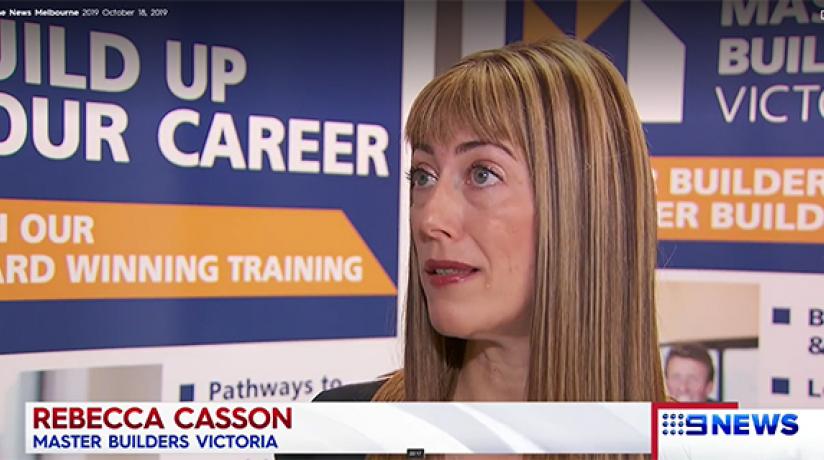New figures released by Master Builders Victoria (MBV) show labourers on Melbourne’s West Gate Tunnel are earning close to $200,000 a year, with a warning that costs on key infrastructure projects may be out of control.
Click here to see the article 'Labourers raking in $200k in West gate wage bonanza' (The Age, 17 Oct; subscription may be required).
MBV CEO Rebecca Casson says she is concerned that Victorian taxpayers will ultimately foot the bill for these wages, that she says are just not sustainable.
“It makes very little sense to us that an entry-level labourer, working no overtime is on a six-figure salary and probably being paid more than a teacher,” she says.
“We have no problem with a fair wage for a fair day’s work, but do you think the Victorian community would understand why a labourer working a basic 36-hour week would be earning $110,00 per year and as much as $195,000 for the industry standard 56-hour week? I don’t think it looks reasonable to many people.”
Ms Casson says deals driven by the building union - the CFMEU - have created a pattern of wages and incredibly generous site allowances that have pushed salaries sky high.
“The CFMEU has been very effective at demonstrating what can—and does—happen when the union doesn’t get what it wants,” says Ms Casson.
“And while they will argue that they lobby for their members’ best interests, in reality, they are creating a cost-prohibitive building environment where smaller projects like child-care and aged care centres, schools and hospitals don’t get off the ground because of these union-driven wages.”
The MBV’s analysis of the main wage agreement in place for the $6.7 billion West Gate project also showed that a qualified tradesperson – again working the industry standard 56 hour week – would be earning close to $300,000 after various top allowances are paid.
Ms Casson says she understands why many builders would agree to what seem overly generous terms and conditions in order to avoid a confrontation with the unions, but she says ultimately there is a price to be paid.
“It might seem like the lesser of two evils, but eventually the Victorian community pays because much needed community projects don’t get built, thanks to unsustainable wages that make projects commercially unviable.”
“It just makes no sense,” she says.
Ms Casson says the MBV’s regional members are also struggling with labour shortages because of the ‘massive carrot’ of the inflated wages currently on offer on some of Melbourne’s major projects.
“The economic health of Victoria depends on the strength of the building and construction sector, which contributes more than 45 per cent of Victoria’s tax revenue,” she says.
“But if this pattern of ongoing building industry wages inflation is allowed to continue, Victoria may face major problems.”
“Surely, at some point, common sense has to prevail; wages and site allowances are very controllable cost factors.”






